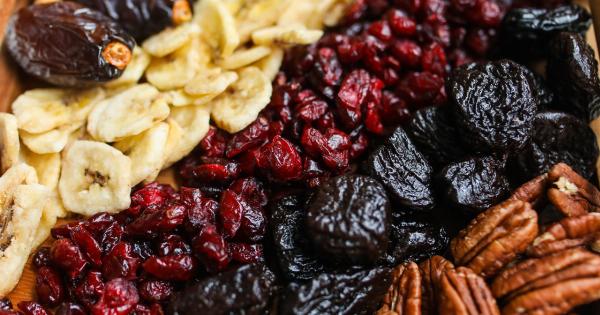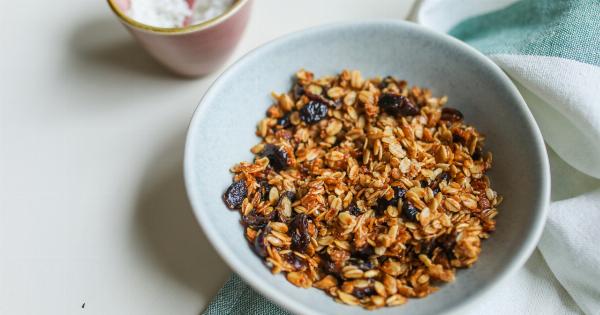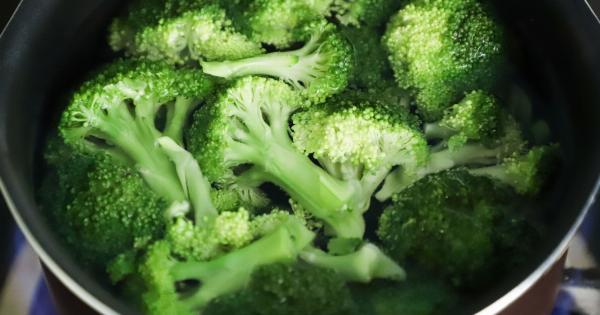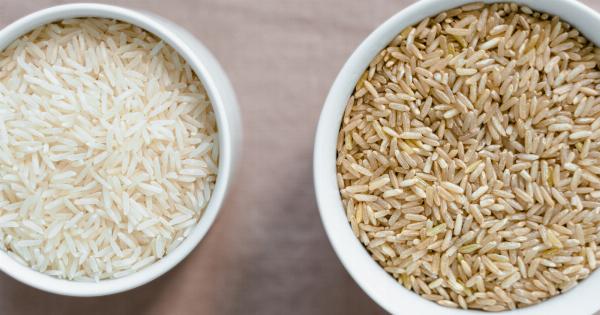Popcorn has long been a classic movie theater snack, but it has also gained popularity as a guilt-free snack option.
While some people view popcorn as a guilty pleasure due to its association with unhealthy additives and high calorie content, others argue that it can be a healthy snack when prepared and consumed in the right way. In this article, we will explore the nutritional benefits and potential drawbacks of popcorn, helping you decide whether it deserves a place in your snacking routine.
The Nutritional Profile of Popcorn
Popcorn is primarily made from a specific type of corn kernel known as Zea mays everta. When heated, the moisture inside the kernel turns into steam, causing the kernel to explode and expand.
This results in the puffy and crunchy popcorn we all know and love.
One of the main advantages of popcorn is its relatively low calorie and fat content. Air-popped popcorn, without any added butter or oils, is highly nutritious and can be an excellent source of dietary fiber.
It is also a whole grain, which means it contains all parts of the original grain, including the bran, germ, and endosperm.
Here is the nutritional breakdown of 1 ounce (28 grams) of air-popped popcorn:.
- Calories: 106
- Carbohydrates: 22 grams
- Fiber: 4 grams
- Protein: 3 grams
- Fat: 1 gram
- Vitamin A: 1% of the Daily Value (DV)
- Vitamin C: 1% of the DV
- Vitamin E: 1% of the DV
- Vitamin K: 2% of the DV
- Niacin: 5% of the DV
- Folate: 6% of the DV
- Manganese: 11% of the DV
- Magnesium: 9% of the DV
- Phosphorus: 8% of the DV
- Potassium: 3% of the DV
- Zinc: 6% of the DV
The Health Benefits of Popcorn
1. Rich in dietary fiber: Popcorn is a good source of dietary fiber, which can promote healthy digestion and help prevent constipation.
Fiber also aids in weight management and can contribute to a feeling of fullness, reducing the likelihood of overeating.
2. Antioxidant properties: Whole grains, such as popcorn, contain a variety of antioxidants that help protect the body against harmful free radicals.
These antioxidants may contribute to a reduced risk of chronic diseases like heart disease, diabetes, and certain types of cancer.
3. Low calorie and filling: Compared to many other snack options, popcorn is relatively low in calories. Its high fiber content makes it filling, which can be beneficial for weight management or those following a calorie-restricted diet.
4. Whole grain goodness: Popcorn is a whole grain, meaning it contains all three parts of the grain. Whole grains have been linked to a lower risk of heart disease, improved digestion, and better weight management.
5. Gluten-free alternative: For those with gluten sensitivities or celiac disease, popcorn offers a satisfying and flavorful alternative to gluten-containing snacks like crackers or pretzels.
Choosing the Right Type of Popcorn
While popcorn itself can be a healthy snack, it’s essential to be mindful of the preparation method and any toppings or flavorings added. Here are some tips to choose the healthiest popcorn options:.
1. Avoid pre-packaged microwave popcorn: Many pre-packaged microwave popcorn brands contain unhealthy additives such as artificial butter flavorings, trans fats, and excessive sodium. It is best to avoid these and opt for alternatives.
2. Air-popped popcorn: The healthiest way to enjoy popcorn is by air-popping the kernels. This method requires no oil or butter, resulting in a low-calorie and low-fat option.
Air-popped popcorn can be flavored with herbs, spices, or nutritional yeast for added flavor.
3. Stovetop popping: If you don’t have an air popper, stovetop popping is another healthier option.
Use a small amount of healthy oil like coconut or olive oil to pop the kernels, and control the amount of fat and seasoning you add.
4. Simple toppings: Avoid drenching your popcorn in butter or sugary caramel. Instead, experiment with healthier toppings like a sprinkle of sea salt, nutritional yeast, or herbs like rosemary or thyme.
Potential Drawbacks and Considerations
1. Unhealthy toppings: While the popcorn itself can be a healthy snack, it is important to be mindful of the toppings or additions.
Adding excessive amounts of butter, sugary coatings, or excessive salt can quickly turn this low-calorie snack into a less healthy option.
2. Choking hazard: The hulls of popcorn kernels can be sharp and may pose a choking hazard, especially for young children or individuals with swallowing difficulties.
It is important to be cautious and ensure that popcorn is consumed safely.
3. Individual sensitivities: While popcorn is generally well-tolerated, some individuals may experience digestive issues or allergies to corn.
If you have any food sensitivities or allergies, it is essential to listen to your body and avoid popcorn if it causes any adverse effects.
In Conclusion
Popcorn can be a guilt-free snack option when prepared and consumed in a healthy way. Air-popped or stovetop-popped popcorn can be a nutritious and high-fiber snack that offers a satisfying crunch.
When choosing your popcorn, avoid heavily processed or pre-packaged options that may contain unhealthy additives. Keep portion sizes in mind and consider experimenting with healthier toppings for added flavor. Popcorn can be a part of a balanced diet and enjoyed as a guilty-free indulgence!.































